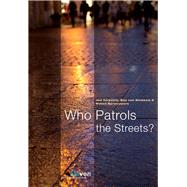Who Patrols the Streets? An International Comparative Study of Plural Policing
, by Terpstra, Jan; Stokkom, Bas van; Spreeuwers, Ruben- ISBN: 9789462360792 | 9462360790
- Cover: Paperback
- Copyright: 9/25/2013
Over the past 20 years, in many areas of the world, a new division of responsibilities has arisen in the management of crime and disorder. Public security is no longer considered to be the task of the police alone. Other agencies, both public and private, have increasingly become involved in preventing and combating nuisance, social disorder, and crime. Who Patrols the Streets? is based on an international comparative study on the pluralization of policing in a number of countries: Canada, England/Wales, the Netherlands, Austria, and Belgium. New uniformed officers are to be found in all these countries, with names - such as surveillance officer, community guard, warden, support officer, and municipal patroller - that differ as much as their uniforms, equipment, legal powers, social status, or relations with the public police. For each of these countries, an analysis is presented of these new forms of policing in the (semi) public space. What circumstances contributed to it? What are the positive and negative consequences of this plural policing? The book presents an analysis of the main similarities and differences in plural policing between these jurisdictions. A typology is presented of the different forms of non-police providers of policing in the public space. Several models are presented that are relevant for the debate on the future policy and organization of non-police policing.






